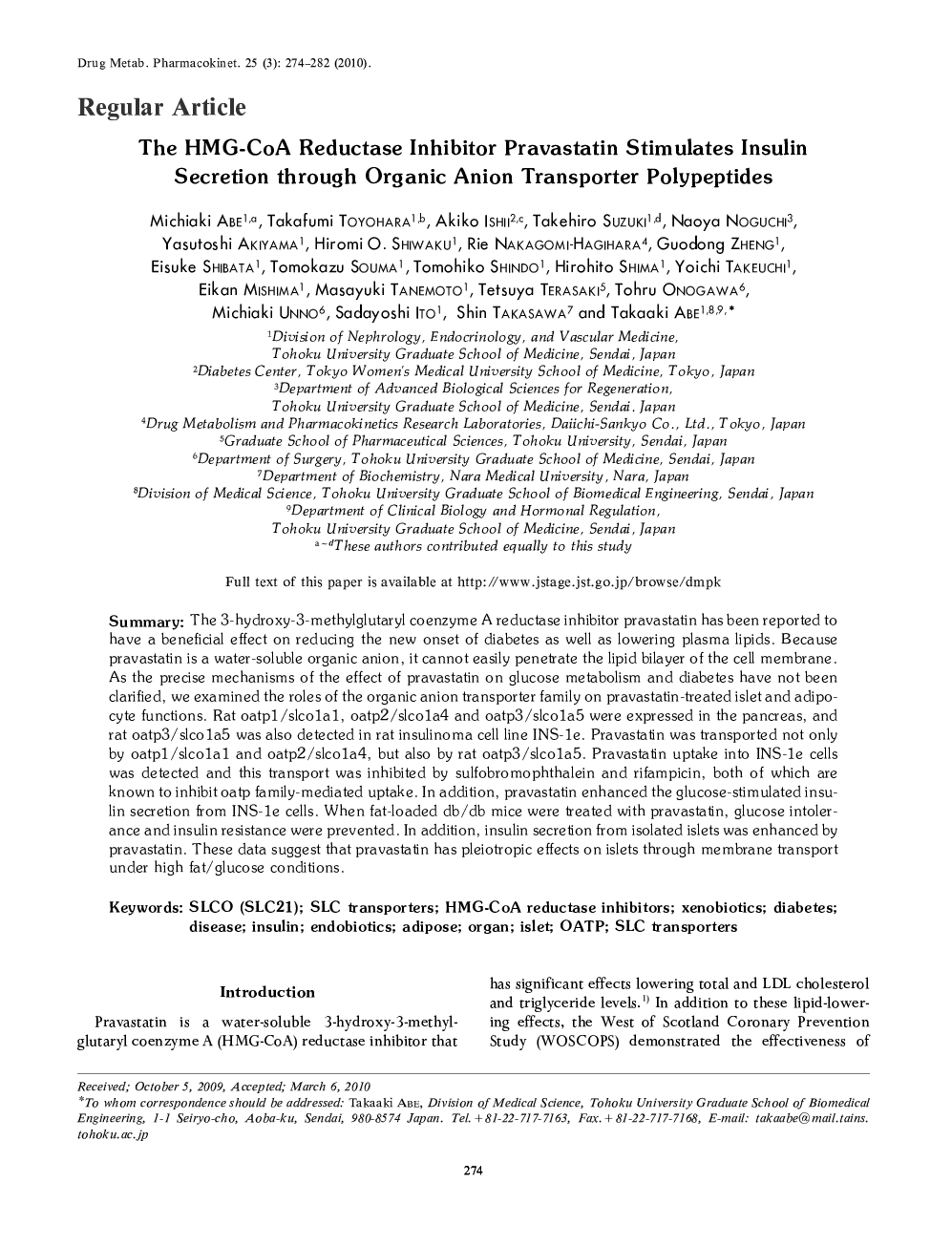| کد مقاله | کد نشریه | سال انتشار | مقاله انگلیسی | نسخه تمام متن |
|---|---|---|---|---|
| 2479139 | 1113426 | 2010 | 9 صفحه PDF | دانلود رایگان |

Summary:The 3-hydroxy-3-methylglutaryl coenzyme A reductase inhibitor pravastatin has been reported to have a beneficial effect on reducing the new onset of diabetes as well as lowering plasma lipids. Because pravastatin is a water-soluble organic anion, it cannot easily penetrate the lipid bilayer of the cell membrane. As the precise mechanisms of the effect of pravastatin on glucose metabolism and diabetes have not been clarified, we examined the roles of the organic anion transporter family on pravastatin-treated islet and adipocyte functions. Rat oatp1/slco1a1, oatp2/slco1a4 and oatp3/slco1a5 were expressed in the pancreas, and rat oatp3/slco1a5 was also detected in rat insulinoma cell line INS-1e. Pravastatin was transported not only by oatp1/slco1a1 and oatp2/slco1a4, but also by rat oatp3/slco1a5. Pravastatin uptake into INS-1e cells was detected and this transport was inhibited by sulfobromophthalein and rifampicin, both of which are known to inhibit oatp family-mediated uptake. In addition, pravastatin enhanced the glucose-stimulated insulin secretion from INS-1e cells. When fat-loaded db/db mice were treated with pravastatin, glucose intolerance and insulin resistance were prevented. In addition, insulin secretion from isolated islets was enhanced by pravastatin. These data suggest that pravastatin has pleiotropic effects on islets through membrane transport under high fat/glucose conditions.
Journal: Drug Metabolism and Pharmacokinetics - Volume 25, Issue 3, 2010, Pages 274–282